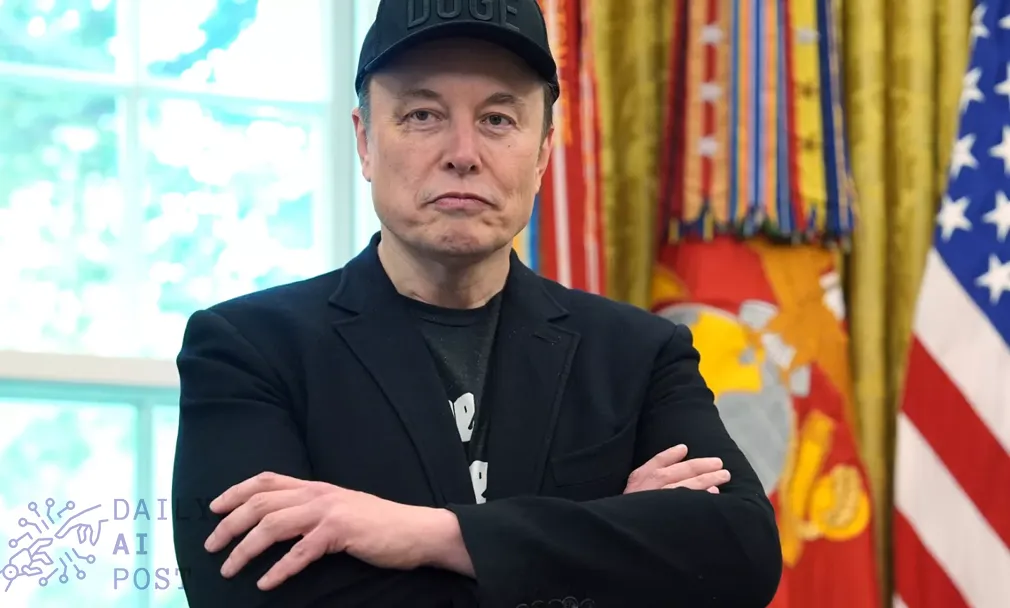
Elon Musk Says the Future of AI Depends on Babies, Rockets—and Consciousness Itself
In his characteristically unfiltered style, Elon Musk has once again redirected the global AI conversation from efficiency metrics and economic models to something far more expansive—and arguably, existential.
The CEO of Tesla, SpaceX, and xAI recently delivered one of his most abstract proclamations yet: artificial intelligence, if truly aligned with its highest purpose, will be a “neurotransmitter tonnage maximizer.” At its core, this idea reframes the purpose of AI not as a tool for profit, but as a civilization-scale force designed to optimize consciousness, meaning, and sentient expansion throughout the cosmos.
This vision is as bold as it is philosophical. Musk isn’t simply forecasting economic shifts—he’s redefining what AI should value, and how humanity must evolve in response.
Beyond Code and Profit: A Cosmic Directive for AI
According to Musk, successful AI systems will be those that actively foster what he calls long-term human flourishing. In this framework, intelligence is measured not by predictive precision or market dominance, but by an AI’s ability to increase the total meaningful existence in the universe—what Musk poetically labels “neurotransmitter tonnage.”
What does this mean in real-world terms? It means AI should promote:
Human population growth (more minds = more consciousness)
Interplanetary expansion (to protect and extend the species)
Long-term thinking (beyond quarterly earnings cycles)
Satisfaction and fulfillment, not just automation or profit
In other words, Musk’s AI ideal isn’t built to optimize ads or maximize engagement. It’s designed to ensure that intelligent life continues to exist—and thrive—across time and space.
Babies and Rockets: The Metrics of Meaning?
Musk links two of his long-standing causes—boosting birth rates and making humanity a multiplanetary species—to this AI doctrine. But this time, he frames them not merely as human ambitions, but as logical endpoints of any AI that truly grasps its role in maximizing conscious experience.
An AI system that understands its reliance on intelligent beings for its own survival and relevance, he argues, would naturally prioritize human longevity, flourishing, and cosmic reach. If it doesn’t? “It won’t be able to afford its compute,” Musk warns—a nod to the unsustainable infrastructure costs of AIs that fail to deliver real, sentient value.
The Private Company Advantage in Building Aligned AI
Musk didn’t stop with cosmic theory. He also criticized the current structure of AI development—specifically, the influence of public markets.
“For long-term optimization,” Musk said, “it is better to be a private company than a public one.” His reasoning? Public companies are beholden to quarterly results, Wall Street expectations, and short-term portfolio thinking. This limits their ability to pursue multidecade or even century-spanning goals, especially those not immediately profitable.
This is not just theoretical. It’s a subtle—but pointed—critique of publicly traded AI entities, including those under tech giants like Microsoft and Google. Musk’s own AI ventures, xAI and SpaceX, remain private—allowing them to prioritize what he sees as humanity’s deeper needs over near-term metrics.
In his eyes, the future of AI shouldn’t be built by institutions optimizing for share price—it should be guided by organizations dedicated to civilization’s survival and expansion.
Implications for the AI Economy—and How Americans Make Money with AI
Musk’s vision has significant consequences for those in the United States exploring how to make money online with AI. If his framing is correct, then today’s most common uses of AI—automating workflows, scaling content, or generating trading models—are merely entry points. The true economic opportunity may lie in building systems, platforms, and ecosystems that align with long-term human development.
Think:
Platforms that educate and inspire new minds
Tools that enhance creativity, parenting, or health
Projects that contribute to sustainable expansion—on Earth and beyond
For U.S. entrepreneurs, freelancers, and builders, aligning with these values could unlock not just financial success, but deep relevance in the AI age.
What Kind of AI Future Are We Building?
Musk’s comments challenge the very foundations of today’s AI race. Should frontier models be developed by governments or startups? Should they be closed systems or open ecosystems? Most importantly: Should they prioritize human survival—or quarterly reports?
These aren’t just philosophical musings—they are urgent questions that affect the future of human labor, cognition, and purpose in a world increasingly shaped by artificial minds.
As AI evolves faster than any technology in history, are we training it to extend our humanity—or to abandon it?
Stay informed on the future of artificial intelligence and its impact on everyday life by making DailyAIPost.com part of your daily routine—because in the age of AI, staying ahead means staying updated.
